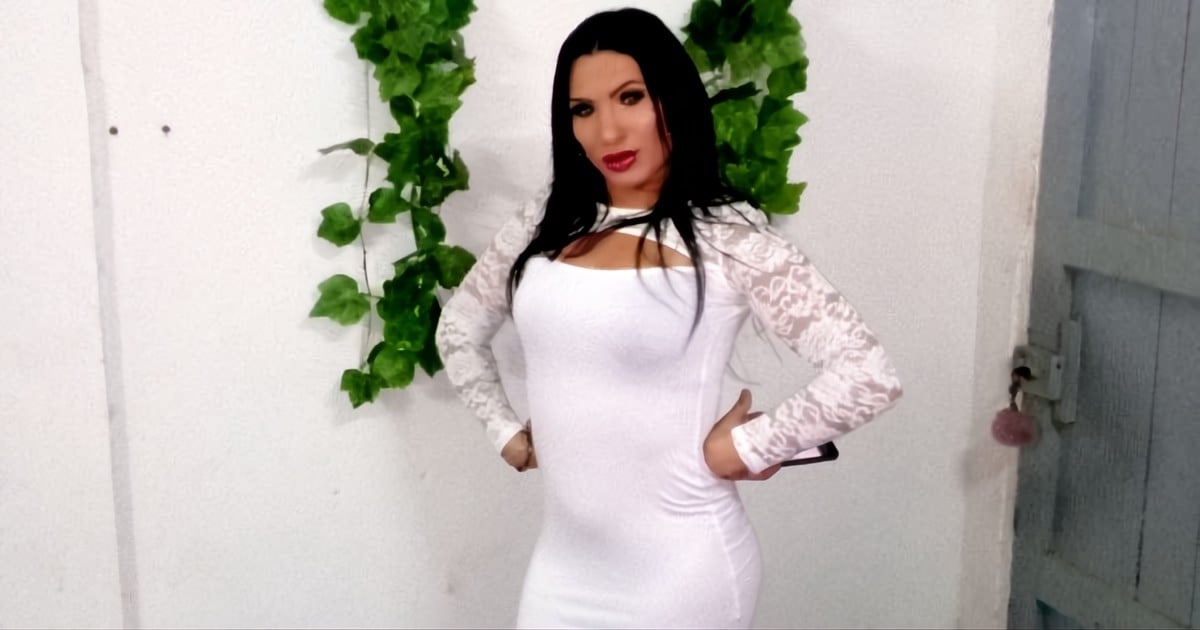Amidst the recent releases of political prisoners in Cuba, Brenda Díaz, recognized as the sole transgender person identified as a political prisoner in the country, was freed this past Saturday after spending over two years behind bars. Activist Marta María Ramírez confirmed the news on social media, emphasizing that the specifics of her release remain unclear and choosing not to mention Brenda's birth name, known as a "deadname," out of respect for her identity.
"Brenda Díaz, the only transgender person identified as a political prisoner following the peaceful protests of July 11th in Cuba, has been released. I am unaware of the conditions of her release and do not share the original post due to the inclusion of her deadname. Cuban prisons are filled with transgender women due to 'State Dangerousness,' a form of political imprisonment," Ramírez stated on Facebook.
The Plight of Transgender Women in Cuba
Brenda was arrested and sentenced to 14 years in prison in July 2021 after participating in the peaceful protests of the 11th of July, where thousands of Cubans took to the streets demanding freedom and better living conditions. Her case has been fraught with allegations of abuse, discrimination, and neglect by the prison authorities.
Charged with public disorder and contempt, Brenda endured harsh conditions during her incarceration, including beatings and confinement in punishment cells, as reported by human rights organizations and independent media.
Global and Local Reactions
Brenda's release follows a vigorous international pressure campaign. Entities like the U.S. Department of State and Human Rights Watch repeatedly condemned her imprisonment, labeling it as political retaliation and discrimination based on gender identity.
In August 2022, she was denied a cassation appeal that could have reviewed her sentence, sparking outrage among activists and public figures.
Broader Context of Political Prisoner Releases
Brenda's liberation is part of a broader release of political prisoners in Cuba. The Cuban government claims this gesture is unrelated to President Joe Biden's decision to remove Cuba from the list of state sponsors of terrorism. It is instead attributed to dialogues between Havana and the Vatican.
Among those released is José Daniel Ferrer, leader of the Patriotic Union of Cuba, who was also detained during the July 11th protests. While these releases are celebrated by some, critics argue they do not signify a structural solution to human rights violations on the island.
Brenda's Struggle Behind Bars
During her imprisonment, Brenda Díaz reported numerous assaults and the failure to acknowledge her gender identity within the Cuban prison system. She was held in a male prison, where she faced ongoing physical and psychological violence.
In January 2024, it was reported that Brenda had been placed in a punishment cell after attempting to defend her rights, prompting renewed condemnation from organizations demanding respect for human rights in Cuba.
Additionally, in an April 2023 letter from prison, Brenda declared, "I will not give up," illustrating her resilience despite adversity. This message resonated with the LGBTQ+ community and Cuban exiles, who intensified efforts to raise awareness of her case.
Brenda's situation also highlighted discrepancies in the government's official discourse regarding diversity and LGBTQ+ rights. Mariela Castro, director of CENESEX and daughter of dictator Raúl Castro, claimed in May 2023 that Brenda was "well cared for" in the male prison, statements publicly refuted by Brenda's mother and activists who exposed the dire conditions she faced.
The ineffective implementation of promised reforms by CENESEX, such as recognizing gender identity in prison regulations, has been cited as an example of the government's failings. Despite these measures being announced in 2023, no significant changes have been realized to date.
The release of Brenda Díaz does not address the systemic issues faced by transgender individuals and political prisoners in Cuba. Reports of abuse and regime repression persist, with the situation in Cuban prisons remaining dire.
FAQs on Brenda Díaz's Release and the Cuban Political Climate
Who is Brenda Díaz?
Brenda Díaz is the only transgender individual identified as a political prisoner in Cuba, known for her participation in the July 11th protests demanding freedom and better living conditions.
What led to Brenda Díaz's release?
Brenda's release followed an intense international pressure campaign and was part of a broader release of political prisoners amidst dialogues between Havana and the Vatican.
What challenges did Brenda face in prison?
During her imprisonment, Brenda faced physical and psychological violence, was held in a male prison, and her gender identity was not recognized, leading to reports of abuse and mistreatment.
How has the international community responded to Brenda's case?
The international community, including organizations like Human Rights Watch and the U.S. Department of State, condemned Brenda's imprisonment as a case of political retaliation and gender identity discrimination.
